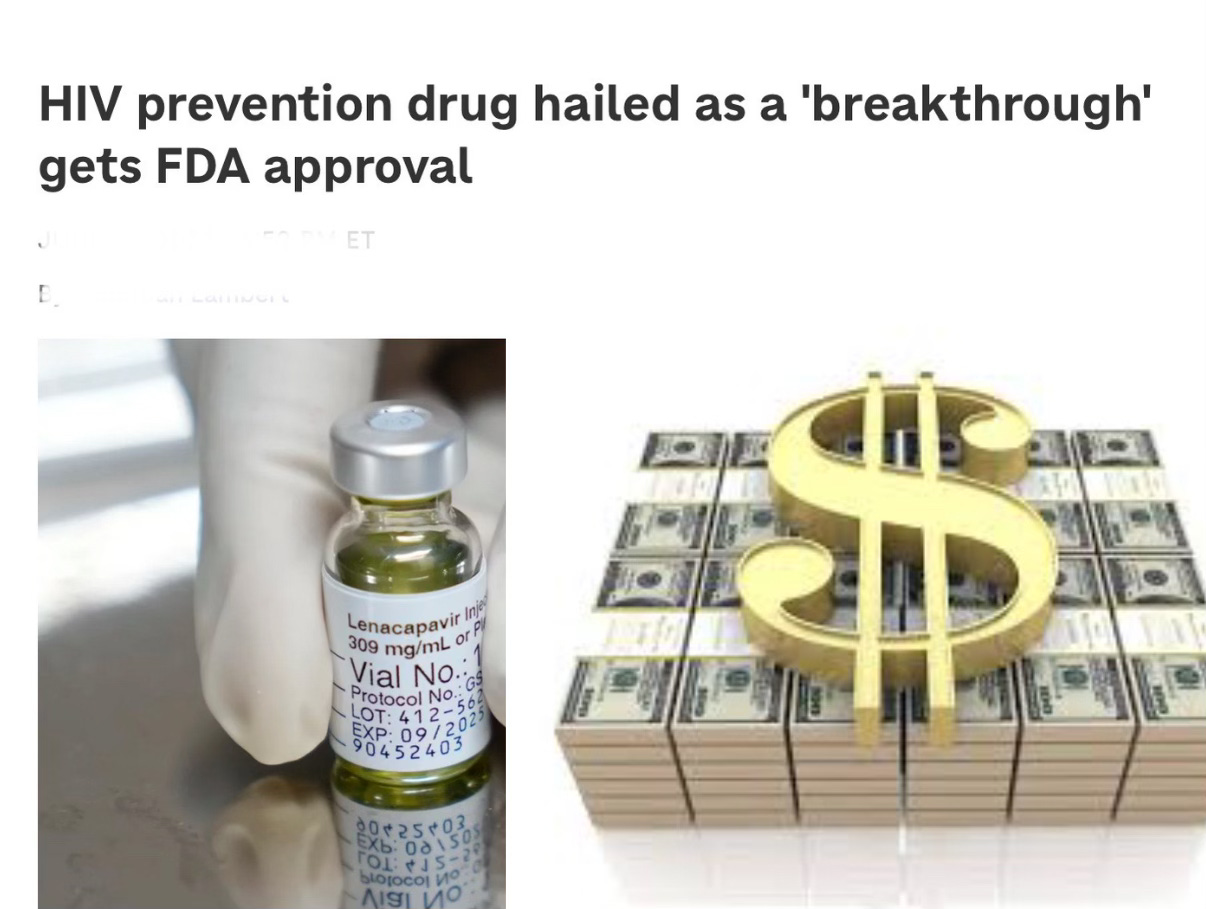America: Big Pharma’s ATM
The United States is home to just 5% of the world’s population—but we generate 75% of global pharmaceutical profits.
That imbalance was at the heart of my Oxford Union debate last week.
Now, there's a fresh example of how drug companies wring outsized returns from the U.S. market.
Gilead Sciences, a California biotech giant, is best known for Truvada, its HIV prevention drug (PrEP), which brought in more than $30 billion.
But here’s what most people don’t know:
The research and testing behind Truvada were paid for by the CDC, NIH, and the Gates Foundation. Gilead’s sole contribution? Supplying the pills for clinical trials.
When the U.S. government patented Truvada in 2015—aiming to distribute it affordably worldwide—Gilead sued to block it. The courts sided with Gilead.
Truvada costs $6 a month to manufacture. Gilead sold it for $1,600 to $2,000 a month—a 25,000% markup.
Now that the patent has expired and generic Truvada is available for as little as $40 a year, Gilead needs a new cash cow.
Enter lenacapavir, a long-acting injectable version of PrEP. Just two shots a year, instead of a daily pill.
Before the FDA, Gilead argued that “some people face significant barriers to taking a daily pill,” and that its injectable offers “a more convenient alternative.” It cited data showing Truvada was only 26% effective in certain groups, largely due to skipped doses.
This is a classic pharma strategy: take an old drug, tweak the delivery method, and get a fresh 20-year patent. It’s called “evergreening,” and it’s wildly lucrative.
The price of Gilead’s new injectable? $28,000 a year per patient.
Gilead expects to rake in over $50 billion from the drug while it’s under patent.
Ka-ching. 💰💲
Welcome to the world of Big Pharma.
P.S. My Oxford Union debate on profits and healthcare will be online soon. When it is, Just the Facts subscribers will be the first to get it. Stay tuned.




Thank you, Mr. Posner, for working so diligently to bring clarity and truth to the public. Staring at truths such as these is sad and painful; shameful, even. Knowing that this is the way "business" is done speaks volumes about the state of character of some who have the responsibility for deciding how "business is done". I wish it were not so.
Thank you!
I don't understand why the US doesn't ask for a fraction of profits when a drug makes it big. We taxpayers can absorb the losses, pay companies to do research, and not force them to pay if it doesn't work out, but if they start making a profit we should get some fraction. It's still no-lose for them.